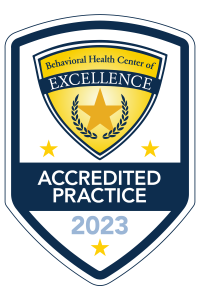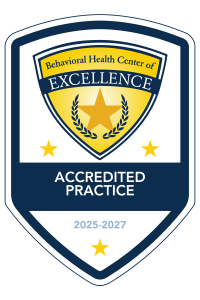Why Are Developmental Milestones Important for Children?

Your child’s first 5 years of life are some of the most precious and the most formative. Understanding the role early childhood development plays in shaping their life and being able to recognize developmental delays is important.
What Are Developmental Milestones?
There are many ‘firsts’ celebrated during your baby’s first years of life. Their first giggle, their first steps, and so many other special moments. These moments are also referred to as developmental milestones. You may have heard this term from your pediatrician, but why are they significant?
Why Developmental Milestones Are So Important
Critical Brain Development in the Early Years
The most dynamic and critical part of early childhood development is the first 5 years of life. A child’s brain grows quickly and stores tons of information. By the age of 5, 90% of your child’s brain has already developed!
The Role of Milestones
Much like mile markers on the road, developmental milestones can help evaluate a child’s growth and learning based on typical skills.
The Centers for Disease Control and Prevention’s (CDC) developmental milestones checklist is a helpful tool that lists key skills a child should be learning from birth to age 5. These milestones were created based on the age at which at least 75% of children were exhibiting these skills. The goal? To help families identify any developmental delays as early as possible through systematic pediatric developmental screening.
Who Evaluates Developmental Delays?
It’s important to note that the CDC’s Milestone Checklist is not a rigid set of guidelines for a child’s development. Instead, it’s intended to help families track and monitor growth, allowing them to be proactive in case of delays.
The Role of Pediatricians in Developmental Screenings
According to the American Academy of Pediatrics (AAP), developmental and behavioral screenings should be done for children at 9 months, 18 months, and 30 months during well-child visits with their pediatrician.
They also recommend that all children have a screening for autism spectrum disorder (ASD) during well-child visits at 18 months and 24 months. Early detection and intervention for developmental delay or disabilities like autism are critical to ensure a child gets the support they need as soon as possible.
When To Consult a Specialist or Psychologist
If you notice a delay, you should have a conversation with your child’s pediatrician about a formal evaluation. The pediatrician will then be able to provide an assessment or refer your family for a developmental evaluation with a child psychologist or developmental pediatrician.
It’s helpful to know there are trained professionals who can evaluate your child’s development and help create a plan to support their growth and learning.
InBloom’s Licensed Child Psychologist, Dr. Jaqui Otto, says, “Tracking stages help us understand whether our children are growing and maturing as expected. However, when delays persist for more than a few weeks or months, it is important to seek the opinion of professionals who can help determine if early intervention is needed to bridge the developmental gap.”
Developmental Delays vs. Autism: Understanding the Difference
Does a delay in reaching a milestone mean your child has autism? Not necessarily. Developmental delays and signs of autism can overlap, but they are not the same thing, which is why formal autism screening and diagnosis are essential. Each child is unique, so screenings and evaluations should be done by an experienced professional, such as a pediatrician or psychologist.
This can differentiate between autism spectrum disorder and other causes of developmental delays and help ensure your child receives an accurate diagnosis.
“It is important to recognize that all children develop in their own time, and children may show a delay in one or more skills for a short period of time but then catch up within a matter of weeks or months. Other children experience delays that persist and require professional intervention, but not all children with developmental delays have autism.” – Dr. Otto, Licensed Child Psychologist
What Is a Developmental Delay?
A developmental delay simply means that a child has not reached one or more developmental milestones at the expected age. These delays can be in various areas, including speech, motor skills, problem-solving, or others. While some signs of autism may look similar to developmental delays, there are differences.
Autism vs. Other Developmental Delays
“Persistent delays in communication skills (especially social communication), play, and behavior are present with autism. However, children can experience delays or differences in language and communication development without having autism.” – Dr. Otto, Licensed Child Psychologist
Autism spectrum disorder (ASD) is a neurological and developmental disorder that may affect communication, social interaction, learning, and more. Although no two children with autism are the same, several common types of behaviors may point toward autism.
Common Signs of Autism
Some possible indicators of ASD include:
- Difficulty with social interactions.
- Repetitive behaviors.
- Communication challenges that may be identified during autism screening and differ from typical developmental delays.
- Sensory sensitivities are often key signs of autism that distinguish ASD from other developmental delays.
- Difficulty with changes in routine.
In our Understanding Autism: From Early Signs to Diagnosis blog, we explain each potential sign in detail and discuss the diagnosis process.
Why Early Intervention Is Critical in Autism
If you have concerns about your child’s development, discuss them with your pediatrician right away. They will be able to refer you to a trained specialist or child psychologist to conduct a formal evaluation.
“Being assessed by a psychologist as soon as autism is suspected is important because it is critical that children with autism receive early intervention. Good intervention partnered with the time to grow and develop makes a huge difference for children with autism.” – Dr. Otto, Licensed Child Psychologist
The Impact of Early ABA Therapy for Autism
Applied Behavior Analysis (ABA) therapy is an effective approach to helping children with autism learn, grow, and achieve their goals. ABA therapy is most effective in the first 5 years of a child’s life. For this reason, it’s important to have pediatric developmental screening to help detect autism spectrum disorder early in a child’s life to ensure they receive the benefits of ABA therapy.
Evaluating for Signs of Autism Spectrum Disorder
Autism is evaluated by professionals with experience in understanding the types of behaviors that are observed in individuals with autism. There is no one medical or psychological test that can quickly diagnose autism. At InBloom Autism Services, our in-house psychologist uses the gold standard for autism evaluation, which includes a thorough clinical interview with parents to gather information about the child’s developmental history and current behavior, together with direct observation of the child by the professional.
Various semi-structured observation tools can be used to quantify autism symptoms. These include the Autism Diagnostic Observation Schedule-Second Edition (ADOS-2), the Childhood Autism Rating Scale-Second Edition (CARS-2), and the TELE-ASD-PEDS (TAP).
Autism evaluation can also include teacher interviews and gathering structured behavior checklists from both children and parents.
The Role of Family and Caregivers in Early Intervention
As your child’s parent, caregiver, or family member, you play a central role in their lives. As you observe them learning and growing, you may have concerns, including their progress toward key developmental milestones.
Taking note of these and consulting a trained professional can be a critical factor in the autism diagnosis process.
Autism Diagnostic Services at InBloom
We’re proud to provide autism diagnostic services for families in select areas. Our in-house Licensed Child Psychologist, Dr. Otto, uses the ADOS-2, a play-based assessment, to diagnose children between the ages of 18 months and 3 years old.
What To Expect During the Evaluation Process
Diagnostic evaluations at InBloom typically last between 45 minutes and 1.5 hours, depending on the child’s needs and the complexity of the autism screening process. The ADOS-2 assessment involves direct interaction with the child to identify a pattern of behaviors consistent with autism spectrum disorder.
Learn more about diagnostic evaluations or contact our helpful team to explore your options and learn how InBloom can make a difference in your child’s life.
Expand Your Child’s Horizons at InBloom Autism Services
InBloom Autism Services specializes in early intervention ABA therapy for young children with autism. Our Board Certified Behavior Analysts (BCBAs) undergo training to develop a curriculum specifically designed for children aged 18 months to 5 years old. Our Learning Centers offer a safe and enjoyable environment for children to learn and interact with their peers. Find a Learning Center near you!
Additional Resources
Download the Autism Diagnosis Guide
What Is ABA Therapy and How Does It Work?
Benefits of Center-Based ABA Therapy for Children With Autism





